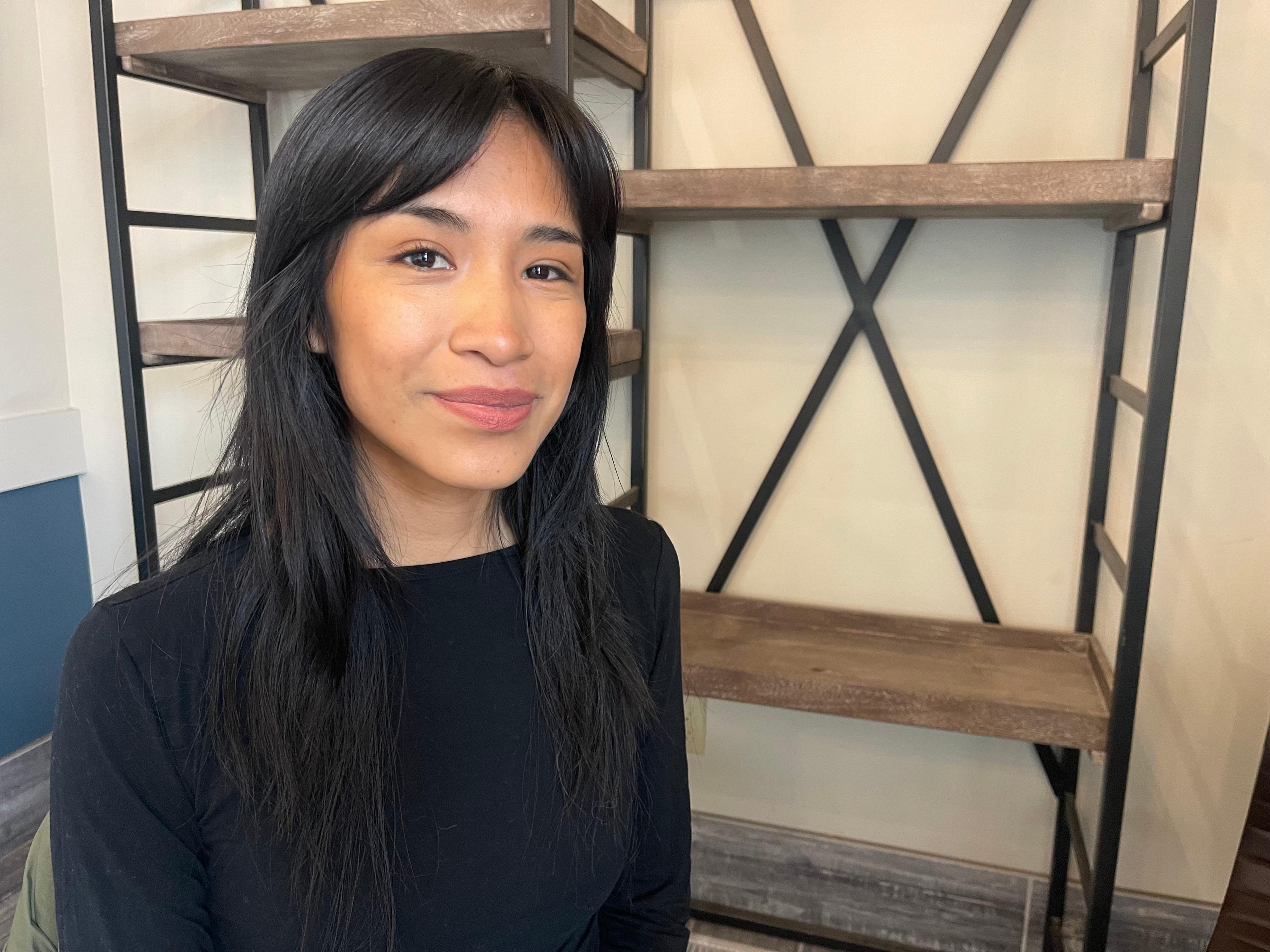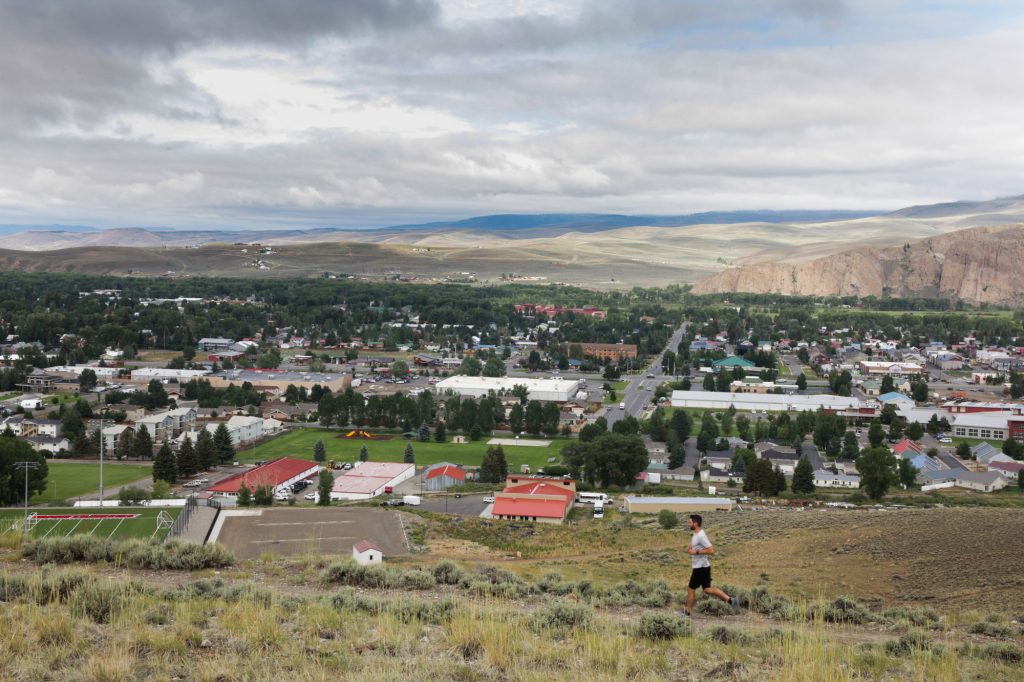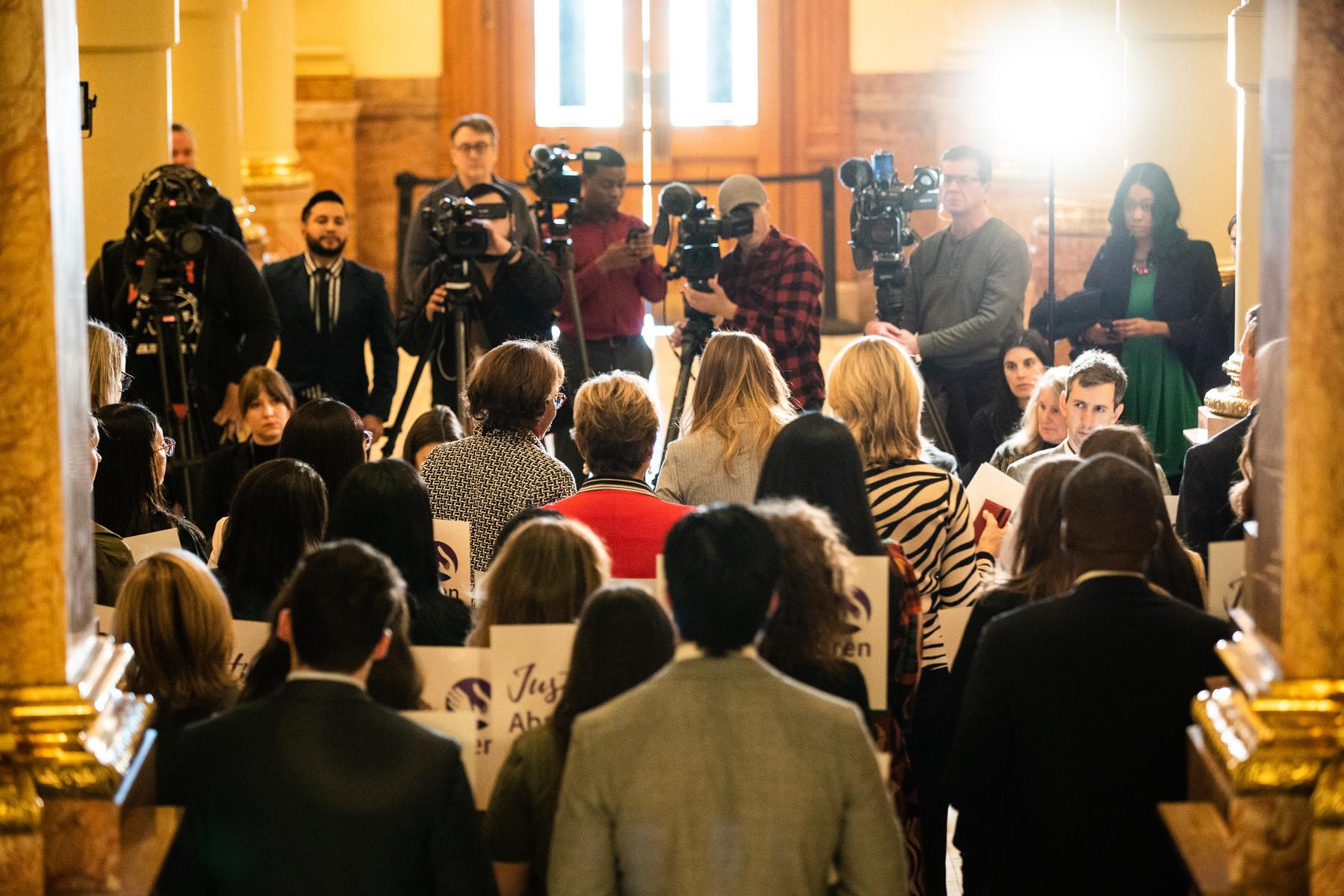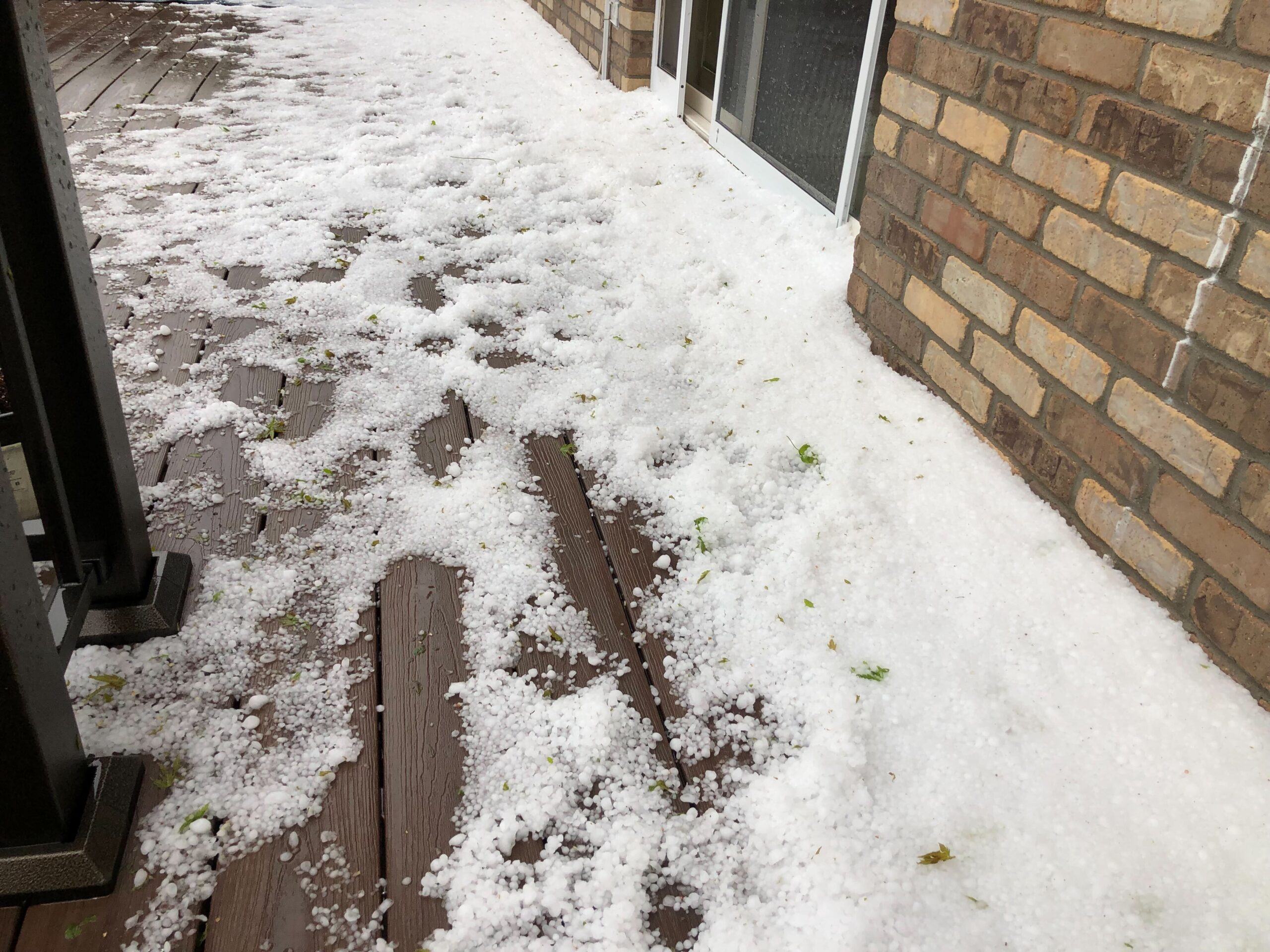
For Marisela Ballesteros, a new report detailing health disparities for Gunnison’s Cora population is a chance to reflect not just on her community, but on what the region can be doing to better serve all newcomers.
The Cora are an Indigenous group from the Nayarit area of Mexico with their own language distinct from Spanish. Gunnison is home to one of the largest populations of Cora people in the United States. Ballesteros is the first Cora resident of Gunnison to serve on the city council. She helped Western Colorado University researcher Cole Cooper on his new report and she says it could provide guidance for decades to come.
“It's not just Cora people now. There's a bunch of Guatemalans here who are where the Cora were 25 years ago. It shouldn't take a group 25 years to finally be seen in the light and get language access,” Ballesteros said. “We need to wake up. What can we do?”
Ballesteros sat down with Colorado Matters host Ryan Warner to discuss Gunnison’s Cora residents.
This interview has been edited for length and clarity
Ryan Warner: I think I'd like to start with your grandmother. This is your father's mother who is a shaman in Mexico. Tell me about her.
Marisela Ballesteros: Well, she's pretty young. She's only in her 80s, early 80s. She was married for some time and then had seven kids. No, eight kids. She had eight kids. My dad was the youngest one, and their father passed away when he was two. So she raised all these kids by herself. Even her grandkids don't talk back to her. She's a very loving person, but she also has her rhythm and her routine.
She's had many struggles, just like many Indigenous women, but she has overcome them. She has her own farm. There's a bunch of pigs that run around. Yeah, just agriculture, it's been her big thing. She's stuck to the core traditions more than a lot of people in my parents' generation. The generation after that had a lot more influence with Spanish culture, American culture.
Warner: How do you think that shapes you? How do you think her holding on to those roots shapes you?
Ballesteros: I would say it shapes me well. I am able to see how the Cora are. My parents are very prideful for being Cora, but I am glad I got to see the differentiation between the modernization of Indigenous cultures. It happens in almost every single Indigenous culture. You can see as you go younger and younger, there's less tie to the root traditions. So I'm glad and I'm thankful I was able to have my grandma and some of my other family members that were able to share those traditions.
Because as of right now, Jesus Maria, the town where the Cora mainland is, is unfortunately not in the best times. Just like a lot of places in Mexico and South America, there is cartel activity, gang activity. So a lot of that is happening just in the surrounding areas. And unfortunately, Jesus Maria sometimes gets affected by it. So there is that danger. There's a lot more people coming to or moving, migrating from that area because there isn't a lot of opportunity for you to succeed without having to be forced to pay a certain amount.
If you have a business, you have to pay the cartel a certain amount. It's something that people need to be educated about. So when people do come to your town who are Cora and they have migrated, a lot of the times it's because they literally have no opportunity to be themselves in their homeland. What they miss is what it used to be and what it can be still, if we are able to mitigate that.
Warner: Do you worry for your grandmother's safety?
Ballesteros: I would say for the seniors, not necessarily. What happens is more if you have interacted with a cartel, then maybe your family might get affected. It's kind of that situation. The elders don't necessarily get affected as much because they stick to their own ways. They stick to their own ties. And then, yeah, I would say there's a huge spiritual energy there because of the Indigenous land that we are in and the history that there is. So it's more learning how to use that energy because there are good and bad.
So some people follow bad, some people follow good. My grandma — my grandfather passed away — but she says that his spirit is still there. So he protects our land. So anybody who enters that land, she has to pray and talk and make sure that that person is protected. Otherwise, they get bit by scorpions, which I've seen very real. It's weird, but it's real.

Warner: What brought your family to Colorado?
Ballesteros: So my dad is your typical immigration story. He came at the age of 13 by himself to start working and send money back to his family. Because again, his dad died and he was the youngest one and they all depended on him to make that money, which is insane to think about —13 years old. I don't know if I could do that. So he started in New Mexico, went to Arizona, then to a little bit of Utah, then to Colorado.
He met my mom in Montrose. So my mom, she moved with her family, so she wasn't alone. She moved with her family at 7 or 8 years old to Montrose, and then that's when she went to school. She was able to experience the American academic culture.
Warner: She is also Cora?
Ballesteros: Mm-hmm, so both of them. It's ingrained in my brain ever since I was little that I'm 100% Cora and I need to be prideful of it and I need to know my language and my culture, because I am Mexican, but I'm Cora first. That has been a huge thing. But I'm glad even though it's taken about 25 years for the Cora to finally be in light and be shown a lot more, I'm very thankful for it. There are three other Indigenous cultures here in Gunnison that are from Guatemala and Ecuador.
They're where the Cora were 25 years ago, and it shouldn't take them 25 years to finally be shown in light, to finally get the access and the resources that they need in order to contribute to our community. The main reason why I joined Council is to be able to be a voice for just the community in general, for all of Gunnison, because I relate to many different communities, just being a local raised here in Gunnison.
So it's more I wanted to be a bridge, a tool to be used in whatever way, to network, connect people because I understand many different things. That's been my life, being multi-everything and trying to balance three different cultures that I identify with, the Cora, the Mexican, and of course, being American. I'm very proud of being an American as well. So trying to teach people like second-generation kids to understand that it's okay that you're a little bit of everything.
That's why I joined is to be a tool, to be a bridge. I can connect with the Cora community. I can also try to let the Council understand where the Cora community is at, what the experiences they've had. Because a lot of the time, people who are in trauma or are in survivor mode, it's really hard to explain what is the root cause of why they react the way they react or why they can't talk or why they can't stand up.
That's a lot to ask for when somebody's still trying to identify that themselves. So me working for a nonprofit, our local domestic violence, sexual assault, and human trafficking resource center for Gunnison County and Hinsdale County, I was able to get trauma-informed. I was able to understand a lot of why I react the way I do, why my family was the way they were, and how we can be better so we can all learn emotional regulation because it's not really a thing in the Cora community or just something that's not really understood.
Because you don't talk about your emotions, you put them down. You just move on because there's always a worse story. Yours doesn't matter. Keep on working. Because otherwise, you're just going to suffer. Keep working.
Warner: One of the big takeaways in this report is the challenge of getting Cora residents comfortable with seeking mental health care.
Ballesteros: Yes, because a lot of the time there is the shaman who you go to. Back in the day, if anything was wrong, you go to the shaman. But what's interesting is they also believe in Western medicine. It is a thing. It's beginning. It's starting, I would say. And I think that's something I want to keep telling my community and a lot of other organizations as I spread the word is, it's starting. There's a lot of people that are starting to join. My mom works at the hospital.
Warner: But the point is that there need to be health care practitioners who are Cora. I mean, certainly ensuring that the current workforce is culturally competent is one thing, but getting Cora people into the mental and into the health care system sounds like a big opportunity.
Ballesteros: Yes, huge opportunity. I know it won't happen tomorrow. It'll probably take years. But maybe this could be an influence to the schools, like the CNA program. Really try to target the Hispanic community. And then of that Hispanic community, how many of them are Cora? Why aren't the kids wanting to do that? And that's completely fine if they don't. My mom definitely wanted me to be in it and I can't see blood or needles. It's just too much. I will cry if I have to stab anybody with a needle.
Warner: You draw so many connections. There's health. There's mental health. There are jobs. Do you ever get frustrated in government?
Ballesteros: Yeah, because I mean, it's more just a system. It's a system. It's more finding the people who are able to see your side. I love talking to all different kinds of people though because I love to see different perspectives. Like I said, I've broken a lot of different barriers within my family myself, so I like to listen to new things. Even if I don't relate to it, I love to listen.
Warner: I have so enjoyed this discussion. I don't think I knew when we started all of the places it went, but I'm glad we went there.
Ballesteros: Yes, I definitely talk a lot. It's all things that I've done though. So thank you. I really appreciate you coming. Anytime you want to do this again, I'm happy to.









